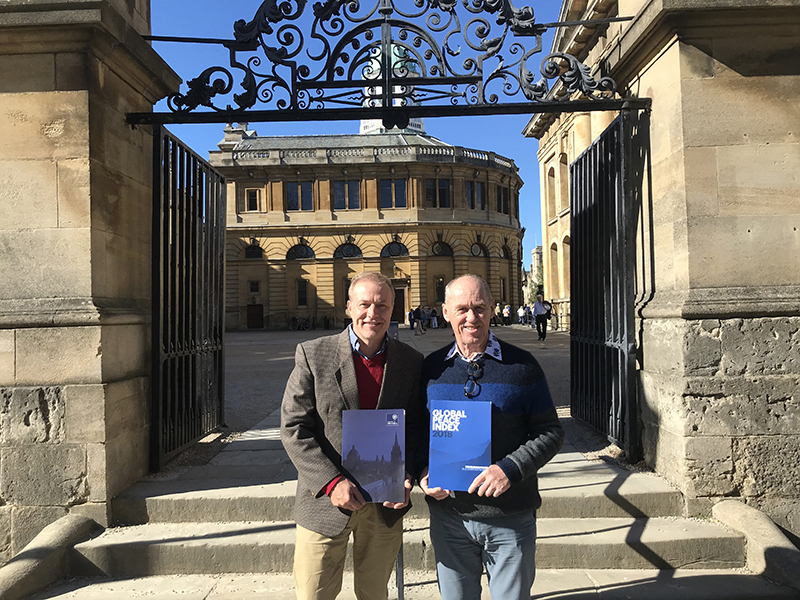The Historical Peace Index, which will allow historians to track elements of peacefulness through history, will launch at the University of Oxford thanks to a generous gift from the Institute of Economics and Peace (IEP).
The IEP and the Seshat: Global History Databank – a large multidisciplinary team of social scientists – will work in partnership with the University to produce the Index.

The team will use cutting-edge big-data science and robust anthropological methodology to map a historically rooted understanding of global peace. They will then be able to provide evidence-based insight into how to improve global peace in the future.
The Historical Peace Index is designed to tie up with, and extend back in time, many of the measures already used by IEP's Global Peace Index, a leading authority in measuring the relative position of nations' and regions' peacefulness.
By sharing the measures with a host of historical societies spread all over the globe, the Historical Peace Index will provide researchers, policy makers, and other advocates for peace with a means to track the long-term evolution of the different elements of peacefulness.
Steve Killelea, Founder of IEP, says: 'IEP is very happy to partner with Oxford University. Peace is at the heart of the world’s future sustainability because, without a world that is basically peaceful, we will never have the levels of cooperation necessary to solve humanity’s sustainability challenges. The partnership between IEP and Seshat will help to make this possible.'
Professor Harvey Whitehouse, Co-founder of Seshat, says: 'Many have appealed to historical examples to support their views on current public policy, but this has usually meant cherry picking, while ignoring counter-examples. The Historical Peace Index will allow us to identify the precursors to peace worldwide over thousands of years, and so provide a more objective way of learning from the past to plan better for the future.'